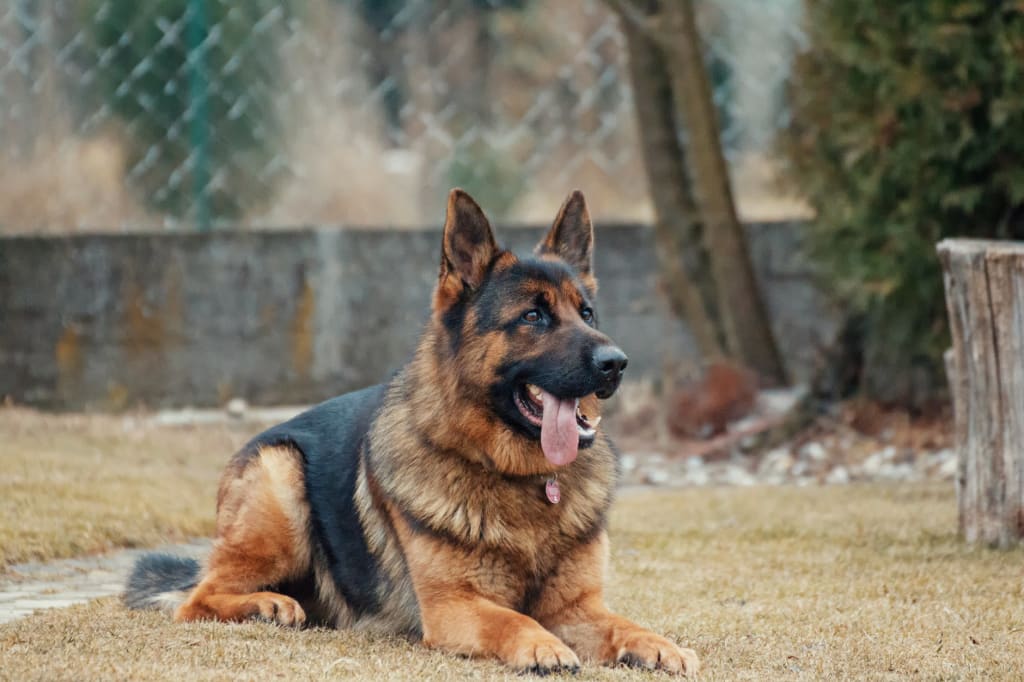How Are Police Dogs Trained?
Have you ever wondered how police dogs are trained to be so disciplined, smart, and agile when on the job? Some of the training methods used in the United States Police Academy may shed some light on this for you.

We all know the agony of seeing a perfectly trained police K9 and not being able to pet his smart, cute, fluffy head because he's wearing a harness that says "Do Not Touch." Police dogs are one of the greatest resources we have as part of the law enforcement agencies across the country. While police agencies are able to do plenty with police officers alone, police dogs are trained for search and rescue efforts, to detect drugs with their strong sense of smell, and to protect officers from criminals. These dogs are extremely helpful to our nation’s safety, and they save lives and stop crime on a daily basis. There's a lot of work and attention that goes into training police K9s, from the time they're puppies until the day they retire.
There are seven different large dog breeds that are specifically trained in police agencies to be used as police K9s. The most common breeds for police dogs are the German Shepherd, the Belgian Malinois, and Labrador Retrievers. Other dogs that are used occasionally as sniffing dogs are Bloodhounds and Beagles. Rottweilers are great dual-purpose dogs for protection and detection dogs. Lastly, the Dutch Shepherd is sometimes utilized in search and rescue.
You may wonder why police officers use German commands as a method in dog training for their police K9s. This is because German commands can communicate a command in English much more quickly. While you may have to use three or four words in English to get a point across, the German language will get the command across with one word. Dogs can comprehend commands much more easily when it is one word.
One of the most important methods used in training is to start the dogs young. This goes for any dog training, actually, and especially for raising a future service dog. If you don’t teach a dog good habits as a puppy, they will not grow up to have good habits as an adult. During dog breeding, they are specifically trained for the police work to come.
Scent training is one of the main areas of focus when police dogs are trained for the United States Police Department. A national police dog must have a strong sense of smell and be trained to use their senses properly so that they can detect drugs and sniff out any criminals or illegal substances. Humans don’t have the same sense of smell that dogs have, which is why dogs are so valuable to us on the police force.
Police training methods use a no force policy when training dogs for the police K9 unit, because using force and intimidation techniques has been shown to negatively influence the progress of training in dogs. A dog will not want to learn from you if they are scared of you. If the police dog makes a mistake and you scare them or hit them, it will not teach them a lesson. They will not understand. It’s important to reward good behavior and to use consistent training tactics to improve bad behavior as opposed to forceful, cruel methods. Inappropriate punishments are a surefire way to confuse a dog, and the last kind of dog anyone wants confused is one that is training to be a police dog.
Reward training is a method commonly used in training police dogs because it is proven to yield positive results. When you reward a dog for good behavior, they will continue to show good behavior. This works the same way in methods of training. A dog will understand and learn from rewards, but they will not learn from being cruelly punished.
The clicker method is another effective way to train dogs in a regular household, as well as in the police department. The clicker makes a specific clicking noise that dogs become accustomed to. The clicker is triggered as a correction noise, so the dog knows when they have done something wrong without being physically punished for it. With the clicker, the dog can learn to correct their behavior whenever they hear the sound, and over time, the dog will learn that behavior without the clicker present.
Incorporating fun into police dog training is something almost every K9 academy emphasizes. No matter how intelligent and specialized police dogs can be, at the end of the day, they are all still dogs. Without a little bit of fun, no dog is going to want to cooperate fully. The same way a company needs a good culture to run smoothly, a dog training program needs fun to be successful. Many police dog academies give ample time to their dogs for playing with toys and socialization with each other.
Consistency is key when training, and it is the foundational method in every other training method used in the police dog training schools. Practice makes perfect. These dogs work around the clock to get their training right. Just like our police officers, we want our police dogs that are out in the field to know exactly what they’re doing because they have the lives of others in their paws. Whether it's drug detection, search and rescue, or stopping criminals on the run, these police K9s consistently train and practice so that they can be experts when it matters most.
All methods used in police dog training are wholly positive methods of reinforcement, similar to large dog training tips used when conditioning a house pet. It’s important that police dogs are trained in positive ways, so that they retain everything they learn and they are able to go out into the workforce with confidence while trusting their human companions. Also, police officers need to be able to trust that their dogs are trained well too, so using positive methods creates a good relationship from both ends. At the end of the day, these dogs are held to a high standard, but officers must always remember that these are dogs, and dogs need love and care in order to be successful.
If you want to know more about how dogs are trained for police work or what different breeds are specifically trained for during police training, you can check out the National Police Dog Foundation website for more information.
About the Creator
Morgan E. Westling
Avid Reader, Freelance Writer/Editor, and Lifestyle Blogger






Comments
There are no comments for this story
Be the first to respond and start the conversation.